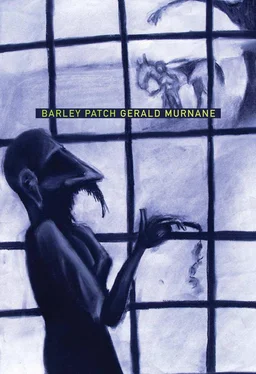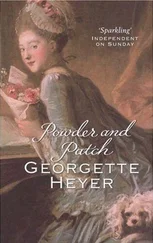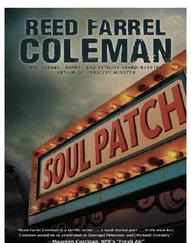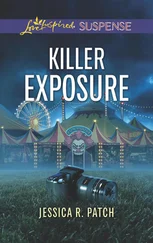Gerald Murnane - Barley Patch
Здесь есть возможность читать онлайн «Gerald Murnane - Barley Patch» весь текст электронной книги совершенно бесплатно (целиком полную версию без сокращений). В некоторых случаях можно слушать аудио, скачать через торрент в формате fb2 и присутствует краткое содержание. Год выпуска: 2011, Издательство: Dalkey Archive Press, Жанр: Современная проза, на английском языке. Описание произведения, (предисловие) а так же отзывы посетителей доступны на портале библиотеки ЛибКат.
- Название:Barley Patch
- Автор:
- Издательство:Dalkey Archive Press
- Жанр:
- Год:2011
- ISBN:нет данных
- Рейтинг книги:5 / 5. Голосов: 1
-
Избранное:Добавить в избранное
- Отзывы:
-
Ваша оценка:
- 100
- 1
- 2
- 3
- 4
- 5
Barley Patch: краткое содержание, описание и аннотация
Предлагаем к чтению аннотацию, описание, краткое содержание или предисловие (зависит от того, что написал сам автор книги «Barley Patch»). Если вы не нашли необходимую информацию о книге — напишите в комментариях, мы постараемся отыскать её.
Barley Patch — читать онлайн бесплатно полную книгу (весь текст) целиком
Ниже представлен текст книги, разбитый по страницам. Система сохранения места последней прочитанной страницы, позволяет с удобством читать онлайн бесплатно книгу «Barley Patch», без необходимости каждый раз заново искать на чём Вы остановились. Поставьте закладку, и сможете в любой момент перейти на страницу, на которой закончили чтение.
Интервал:
Закладка:
The chief character had been pleased to learn, soon after his arrival in the building of two storeys, that the building where he and his fellow-novices were to study and to perfect themselves for a year was also the building where the priests of the order spent their retirement. The chief character thought it fitting that men who had worn themselves out with preaching and with praying and meditating should be able to spend their last years looking out over mostly level grassy countryside while they brought to mind some of the images that had sustained them during their lives as priests. On the Saturday afternoon mentioned in the previous paragraph, the familiar sound heard by the chief character was the sound of a radio broadcast of a racing-commentator describing a horse-race in Sydney.
The chief character had not heard any sort of radio broadcast since he had arrived at the building of two storeys ten weeks before. Nor had he seen any sort of newspaper during that time. During their year in the novitiate, the novices were meant to be free from the so-called distractions of the everyday world while they were formed into exemplary religious, and so they were denied access to radios and newspapers. Strictly speaking, the chief character should have turned away and ceased to listen to the race-broadcast, but he excused himself on the grounds that he was unable to make out any words; all he could hear was the muffled voice of the commentator and the steady rise in pitch as the race neared its climax.
Later on the same day, the chief character found a pretence for passing again by the old priest’s door. Again, the chief character heard the sound of a race-broadcast. This time, so the chief character thought, the race being described was being run in Melbourne. On the following Saturday afternoon, when he was again polishing the floor of the corridor, the chief character heard again the same sounds that he had previously heard. He had never yet seen the old priest. He saw in his mind a frail, white-haired man sitting at the table in his room and looking through the window and across the mostly level grassy countryside while he saw sometimes in his mind an image of one or another divine or canonised personage and at other times an image of one or another horse-race being run far beyond the farthest line of trees in the distance.
On the Monday afternoon after the second of the Saturday afternoons mentioned above, the chief character had to pass along the priests’ corridor on his way to perform his latest rostered task, which was to clean the priests’ bathroom and toilets. Outside the door of the retired priest who listened to race-broadcasts was a newspaper. (The chief character understood that newspapers were delivered to the building every day and were then set out in the priests’ recreation room. Only the novices, trying to live by the strict rule of the order, were shut away from the world.) The chief character looked up and down the priests’ corridor and saw that it was deserted. Then he picked up the newspaper, which was some or another tabloid published in Sydney. Then he put the newspaper on the floor again but with its rear page facing upwards. Then he leaned over the page and tried to read it, watching at the same time for any priest who might step into the corridor.
Much of the rear page was occupied by an image of a racehorse winning a race by a wide margin. The chief character learned that the horse was the two-years-old colt Todman and that the race was the inaugural Golden Slipper Stakes at Rosehill racecourse in the suburbs of Sydney. The chief character might have learned more if he had not seemed to hear from around a corner of the corridor the clattering sound of a pair of sandals such as every priest and novice wore as part of his habit.
The chief character had heard already about the colt Todman, which had won several races in Sydney during the last months before he, the chief character, had left home for the building of two storeys, but he could not recall having previously heard about the inauguration of the Golden Slipper Stakes. At some time after he had left the building of two storeys and had returned to his parents’ house in a suburb of Melbourne and had begun to work by day as a clerk in a building of many storeys near the centre of Melbourne and to try to write poetry and prose fiction of an evening and to attend one or another race-meeting every Saturday, the chief character learned that the Golden Slipper Stakes was the richest race for two-years-olds in the world. He learned further that the phrase golden slipper was meant to denote a horseshoe. The winner of the race came back to the scales area through a horseshoe-shaped wreath of yellow flowers, and the trophy presented to the winning owner or owners included in its design a golden horseshoe. And yet, during his last two weeks in the building of two storeys and for some weeks after he had arrived home from the building, whenever he heard the phrase golden slipper in his mind the chief character saw a moment afterwards an image of a slipper such as might have been worn by one or another young female personage in one or another story purporting to be a story for children. The image-slipper was of translucent yellow glass and rested on an image-cushion of black image-velvet until the young female personage, the owner of the image-slipper should appear.
During the first year after I had given up writing fiction, as was reported in the first paragraph of this work of fiction, I read for the first time the book Bestseller , by Claud Cockburn, which had first been published in London by Sidgwick and Jackson in 1972. I have since forgotten all but five of the many thousands of words that I read in that book. The five words were reported as having been spoken by a so-called progressive Protestant clergyman who had been asked, during the first decade of the twentieth century, how he thought about God. The clergyman had replied that he had for long supposed that God was a sort of oblong blur.
Later during the first year after I had given up writing fiction, I received a letter from a lay-brother of the Cistercian Order, whose monastery stood among mostly hilly country no more than thirty kilometres from the suburb where I had lived with my wife and our children for more than twenty years. I intend to refer to the lay-brother from here on as the monk.
I was pleased to have been addressed in writing by a member of a religious order that I had mentioned in my latest work of fiction, even if that work had since been abandoned. And yet, I was puzzled by the letter. The monk had written that he would like to meet me and, perhaps, to discuss some of my published books of fiction, which he admired, so he wrote, for their skilful depictions of relationships between men and women. I was puzzled because I could recall from my six published books of fiction hardly any passage reporting a relationship, as that word was commonly used. The monk invited me to visit him at his monastery. If I was not eager to discuss my fiction with him, so he wrote, then I might like to talk with him about horse-racing. As a young man, he had been much interested in horse-racing, and one of his brothers was a race-caller who could be heard every day on radio describing races in country districts of New South Wales.
I visited the monk in his monastery a few weeks later. I was surprised that I, a stranger, could visit him so easily. From my reading, I had learned that the Cistercians observed strict silence and received only occasional visits from close relatives. The traditional Cistercian monastery had a guest-house, but the only monk who spoke with the guests was the guest-master, who had been released from his vow of silence by the abbot. The monk, however, spoke freely with me when we met. He explained later that many of the rules of the Order had been relaxed in recent years. A monk was free to receive guests, even female guests, in the parlour of the guest-house whenever he wished.
Читать дальшеИнтервал:
Закладка:
Похожие книги на «Barley Patch»
Представляем Вашему вниманию похожие книги на «Barley Patch» списком для выбора. Мы отобрали схожую по названию и смыслу литературу в надежде предоставить читателям больше вариантов отыскать новые, интересные, ещё непрочитанные произведения.
Обсуждение, отзывы о книге «Barley Patch» и просто собственные мнения читателей. Оставьте ваши комментарии, напишите, что Вы думаете о произведении, его смысле или главных героях. Укажите что конкретно понравилось, а что нет, и почему Вы так считаете.












